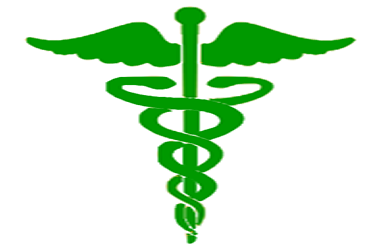The first Nigerian to practice modern medicine in his own country, Dr Nathaniel King may be credited with truly opening the doors for the likes of Johnson, Sapara and Randle.
Early Life and Education
Nathaniel King was born to Yoruba parents in Hastings, Sierra Leone on 14 July 1847. His father, Rev. Thomas King, together with Ajayi Crowther, translated several catechisms and portions of the Bible into Nigerian dialects.
The transfer of Thomas King from Sierra Leone to the Yoruba mission in Nigeria in 1850 allowed Nathaniel to gain early association with his country of origin. His intellectual brilliance caught the attention of A. A. Harrison, M.D., the missionary doctor who, under the impetus of Rev. Henry Venn, started a "medical school" at the Church Missionary Society Theological Institute at Abeokuta, Ogun State in 1861. Nathaniel King was one of the four "promising native youths" selected to be trained by Dr. Harrison. They used four copies of Hooper's Physician's Manual, supplied by the parent committee of the Church Missionary Society at Salisbury Square, London. Dr. Harrison’s courses included: anatomy, physiology, chemistry, botany, material medical and surveying. The Abeokuta Experimental Medical School was unfortunately short-lived. One student was dismissed, two were sent to teach in Lagos Schools, and only Nathaniel King, who had made encouraging progress, was left. He became Dr. Harrison's personal assistant. When Harrison died in 1864, the first attempt at medical education in a Nigerian institution was prematurely concluded. For Nathaniel King, it was not the end. The Church Missionary Society sent him to Sierra Leone in 1866 to prepare for a career in Medicine, anticipating his future admission into the Army Medical Service like Horton and Davies before him. In 1871, he entered King's College, London, and gained the Membership of the Royal College of Surgeons (MRCS) in 1874. He obtained from Edinburgh the Bachelor of Medicine and a Master of Surgery in 1876; three years later, he earned his M.D.
Career
King was back in Lagos in 1878 where he gave his services to the Church Missionary Society for "fifty pounds per annum" until January 1882 when his annual salary was increased to seventy-five pounds. A highly talented and popular man, his wholehearted service to his patients and his charming personality enabled him to break the confines of colour and discrimination, leading him to be the consulting physician to most of the European firms in Lagos. An early death on 12 June 1884 cut short his promising career. He had been in the vanguard of the efforts which led to the improvement in sanitation in old Lagos. His contemporaries acknowledged his profound literary and scientific knowledge, comparable to that of Horton. Apart from speculations that he was collecting material for a future book on science at the time of his death, there is nothing substantial to show for the erudition of Nathaniel King.
Legacy
As the first Nigerian to practice modern medicine in his homeland Nathaniel King was a true pioneer. Through hardwork and diligence he made the absolute best of every opportunity granted to him, opening doors for those that followed and proving that the African was as capable as his European contemporary.
Sources
“Some Early Nigerian Doctors and Their Contribution to Modern Medicine in West Africa” by Professor Adelola Adeloye, Medical History, 1974, vol. 18, p. 274-293.
National Center for Biotechnology Information (NCBI)
J. F. A. Ajayi, Christian Missions in Nigeria, 1841-1891: the making of a new elite, London, Longmans, 1965, pp. 161-162.
CMS (Yoruba) 1/1/2, 1861-1869. Harrison to CMS Committee, Salisbury Square, London, 4 November 1861.
CMS (Yoruba) 1/1/6,1882-1886. Lang to Mann, 23 June 1882.
Lagos Observer, 19 June 1884.

